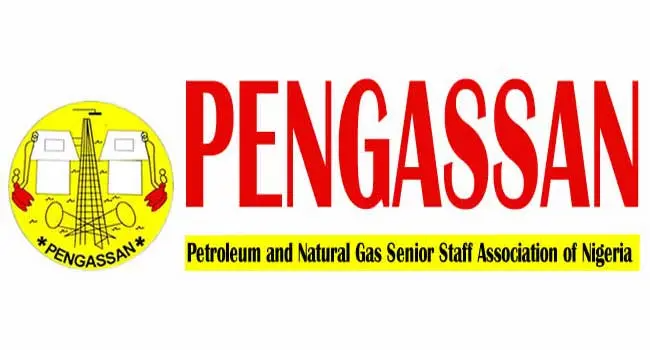The Petroleum and Natural Gas Senior Staff Association of Nigeria (PENGASSAN) has raised concerns about the potential adverse effects of the ongoing tax reforms on the oil and gas industry.
Speaking during the association’s National Executive Council (NEC) meeting in Abuja on Tuesday, PENGASSAN President, Comrade Festus Osifo, called for the need for clarity and inclusivity in tax exemptions and revenue collection processes especially on how the new regulations would affect key sectors, including the Nigeria Upstream Regulatory Commission (NUPRC) and the Nigeria Midstream and Downstream Petroleum Regulatory Authority (NMDPRA).
RELATED: Reps In Shouting Match Over Tax Bills
PENGASSAN also demanded for expanded tax relief measures to accommodate more individuals and businesses, particularly those in lower income brackets with argument that the measure would better support the broader population, including many workers in the oil and gas sector, who are already grappling with economic challenges.
Osifo further called on the National Assembly to ensure proper public hearings on the tax reforms, to enable stakeholders, including PENGASSAN, to articulate their concerns and propose amendments.
He said, “The association noted the ongoing tax reforms and wish to demand that the tax relief exemptions that is given to those earning minimum wage and business should be expanded to accommodate more people and companies in that category.
“Clarity must be provided regarding revenue collection processes from oil and gas companies as some provisions in the bill have the likelihood of negatively impacting our members.”
On the operations of Port Harcourt Refinery, Osifo confirmed that the facility was fully operational after extensive rehabilitation efforts.
He stated that the refinery, which was initially designed to produce diesel, kerosene, and naphtha, is now delivering products such as diesel and kerosene, with ongoing work to fully optimize production.
He credited the success of the rehabilitation to stringent financial oversight, which ensured funds were kept in escrow accounts, limiting access to unauthorised parties.
However, Osifo noted that while the refinery’s operation marks significant progress, it will not immediately lead to lower fuel prices due to the Naira’s devaluation.
Speaking on other sectorial concerns, Osifo demanded stricter enforcement of environmental protection regulations to support oil-bearing communities and kicked against expatriate quota abuses in the oil and gas industry.
On power sector challenges, Osifo lamented, “Every Nigerian knows and feels the consequences of our poor power supply and deteriorating energy sector, As a union, we advocate decentralising power transmission and involving state governments and private sector players.”
Addressing the food crisis, he declared, “The Nigerian government must take measures to support both commercial and smallholder farmers, who are the backbone of the food system.”
